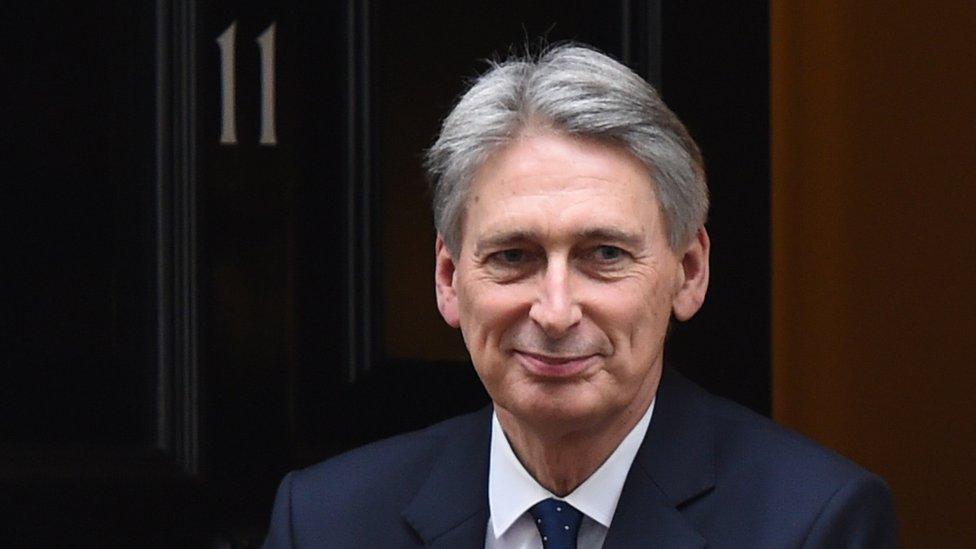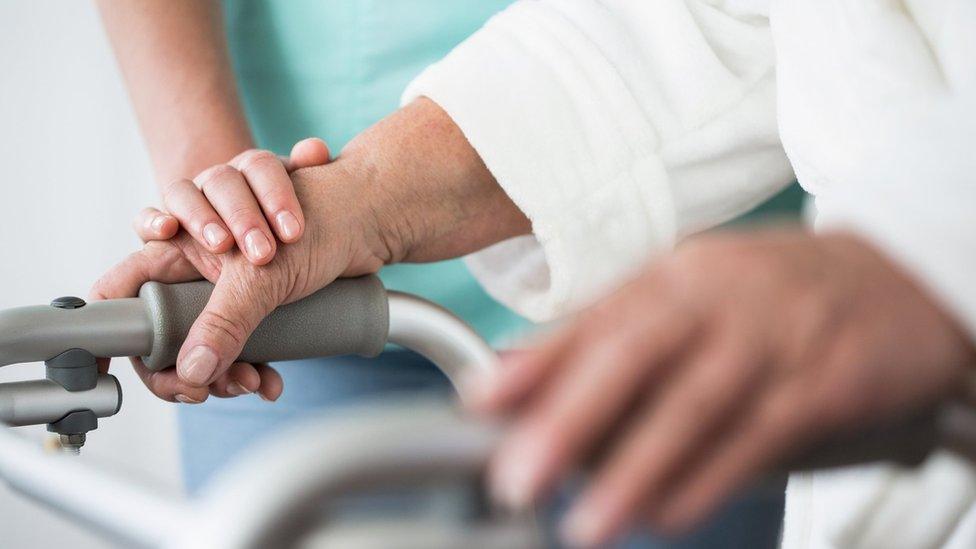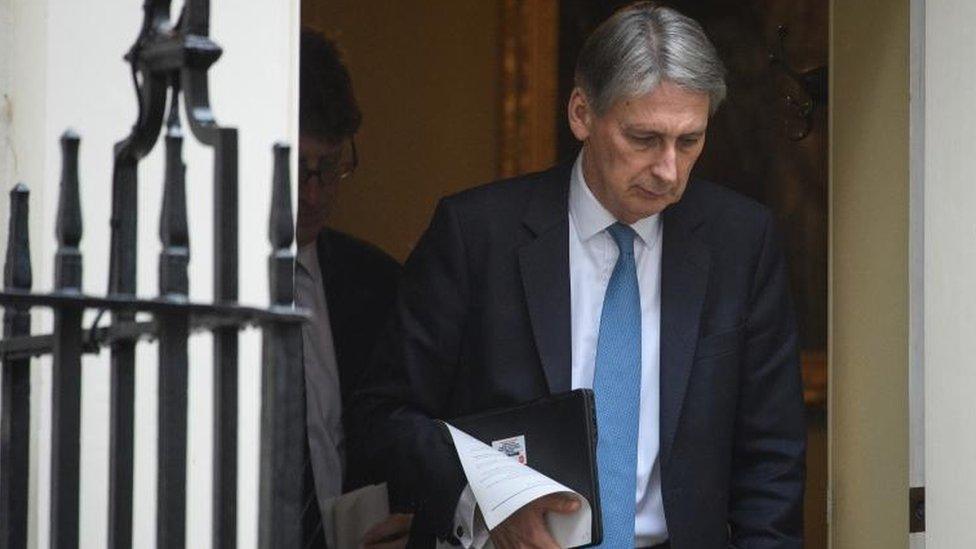Government looks for new spending cuts of up to 6%
- Published
- comments

Chancellor Philip Hammond will deliver his latest Budget on 8 March
Government departments have been told to find spending cuts of up to 6% as part of plans to save £3.5bn by 2020.
Ahead of next week's Budget, the Treasury announced Whitehall would begin coming up with ways to contribute to its "efficiency review".
It said the NHS and core schools budgets would not be included, with savings found by councils to be spent on under-pressure social services.
Labour accused the government of "sneaking out... more Tory austerity".
Departments have already faced significant cuts in their budgets since 2010, but they will now be told to find further savings of between 2% and 6% by 2019-20, the Treasury said, with up to £1bn to be reinvested in "priority areas".
It added that the government would continue to spend 2% of GDP on defence, and it remains legally obliged to spend 0.7% of GDP on overseas aid.
The planned savings are due to be introduced around the time the UK is scheduled to be leaving the EU, and just before the next general election.
'Appalling'
Chief Secretary to the Treasury David Gauke said the government was committed to delivering services "in the most efficient way possible".
He added: "There has been considerable progress, but there is further to go and the whole of government is working together to consider how we can live within our means while delivering maximum value for every pound of taxpayers' money."
But shadow chancellor John McDonnell said further cuts would put councils in an impossible position and "it was difficult to see" how they would maintain services.
With interest rates so low, he said there was an "overwhelming case" for government to borrow to fund spending on infrastructure, such as roads, rail and broadband.
"The government has said schools and hospitals are going to be protected. That is simply not true. The NHS is suffering the biggest crisis since its foundation and schools are having the first budget cut per head since the 1970s.
"This is an appalling situation."

The government is being repeatedly urged to spend more money on social care
Public spending as a share of GDP has fallen steadily since 2010 when it totalled 45%. This year's figure is forecast to be 40%.
Mr Hammond has relaxed the government's fiscal targets since taking over in July, abandoning predecessor George Osborne's target of eliminating the deficit by 2020.
But he has made clear that borrowing levels are still too high and that the government should be aiming to balance the books at some point in the 2020s.
The Institute for Fiscal Studies has said meeting this target by 2025 would require up to £34bn in further spending cuts and tax rises.
But ahead of his first Budget on 8 March, Mr Hammond is under pressure to increase spending on a number of fronts amid signs that stronger-than-expected tax receipts could give him additional room for manoeuvre.
He is facing calls to rethink the revaluation of business rates in England which would see more than half a million firms pay higher annual bills.
Care lifeline
Labour wants £500m to be made available to help small businesses cope with the impact, warning that it could leave many High Streets a "wasteland".
Several Tory MPs are pressing the government to make extra funding available for social care on top of what is already being promised.
Speaking in the Commons on Monday, Conservative MP Sarah Wollaston said the effects of an ageing society, on top of underlying financial pressures, were creating a "perfect storm" for the health service.
She said the NHS needed a cash "lifeline" in the Budget and that plugging gaps in day-to-day spending by re-allocating capital spending was a "false economy".
The government is being warned that a further dose of austerity, without better financial planning and reform, could push some public services to "breaking point".
In a new report, the Institute for Government and Chartered Institute of Public Finance and Accountancy said social care and prisons were in a cycle of "crisis, cash, repeat" and better use needed to be made of the money being spent.
- Published21 February 2017

- Published7 February 2017
